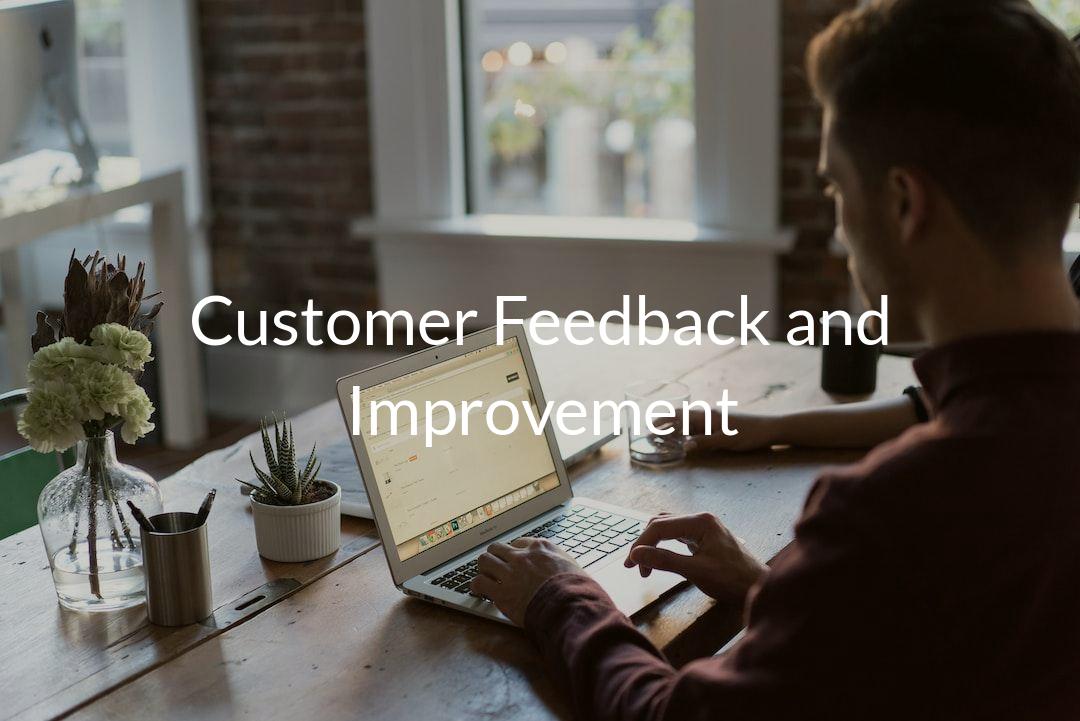Is starting a business with no money just a pipe dream, or is it a realistic goal for aspiring entrepreneurs? The good news is that it’s entirely possible to launch a successful startup without an overflowing bank account, but it does require a strategic approach and plenty of determination.
Startup With No Money: Starting From Scratch entails identifying low-cost or no-cost business ideas, conducting thorough market research, establishing a minimal viable product, bootstrapping, leveraging personal networks, and planning revenue streams for financial sustainability. Delve into this comprehensive guide to understand how you can lay the groundwork and scale up your zero-capital startup.
Ready to embark on your entrepreneurial journey? Continue reading to gain valuable insights and tactics to make your startup dreams a reality, even with limited financial resources.
Identify Low-Cost or No-Cost Business Ideas
Embarking on an entrepreneurial journey with limited financial resources means focusing on low-cost or no-cost business ideas. These ventures require minimal startup capital and can often be launched from scratch without large investments. Here are some ideas to consider:
- Service-based businesses: Virtual assistance and freelance writing are two service-based ventures that require minimal upfront investment. All you need is a computer, internet connection, and the skills to provide quality service.
- Digital products: Creating and selling digital products such as eBooks, online courses, and templates can be a cost-effective way to start a business, as you don’t have to worry about inventory or shipping expenses.
- Dropshipping or print on demand: These business models allow you to sell physical goods without holding any inventory, reducing operational costs significantly. By partnering with suppliers, you can start selling products online without investing in inventory.
Conduct Thorough Market Research
Before committing to a particular business idea, it’s essential to conduct thorough market research to validate its potential. This involves examining your target market, industry trends, and competition. Here’s how to go about it:
- Validate your business idea with potential customers: Talk to people who may be interested in purchasing your product or service to gauge their level of interest and willingness to buy. This feedback can help you understand whether your idea has a viable market demand.
- Analyze competitors and the target market’s willingness to pay: Research your competitors and determine what differentiates your offering from theirs. Identifying gaps in the market and areas for improvement can give you a competitive edge and attract more customers.
Establish a Minimal Viable Product (MVP)
A minimum viable product (MVP) is a basic version of your product or service designed to test its viability in the market. According to LegalZoom, an MVP allows you to “test your idea’s core features and use customer feedback to make improvements before committing significant resources to development.” Here are the steps to create an MVP:
- Develop a simple version of your product or service: Focus on the essential features that address your target customers’ needs. This will help you test the market’s response and gather valuable feedback for future iterations.
- Use customer feedback for future development: Collect feedback from early users and customers to refine your product or service. This iterative process will help you improve your offering and increase its chances of success in the market.
Consider Bootstrapping and Lean Operations
Without significant financial resources, bootstrapping—relying on personal savings, and minimizing expenses—becomes crucial. Running your startup with lean operations can significantly reduce costs and support growth. Here are some strategies:
- Utilize free digital tools and resources: Take advantage of free online tools for project management, communication, and marketing. Organizations such as SCORE provide resources and mentorship to help startups grow at no cost.
- Focus on essential operations that cost little to no money: Prioritize activities that generate revenue and have a minimal impact on your budget. Outsourcing tasks to freelancers can also save costs on full-time employees.
Leverage Personal Networks and Community Support
Your personal networks and the entrepreneurial community can provide valuable support in the early stages of starting a business. Here’s how to make the most of these connections:
- Connect with mentors and join online communities: Seek guidance from experienced entrepreneurs who understand the challenges faced when starting a business with limited resources. Join online forums and groups to find support, advice, and resources from like-minded individuals.
- Barter or exchange services with peers: Collaborate with peers and fellow entrepreneurs to exchange services and expertise. This practice can help you access valuable resources and skills without spending money.
Plan Revenue Streams and Financial Sustainability
Even when starting with no money, it’s essential to have a clear plan for generating revenue and sustaining growth. Consider the following strategies for financial sustainability:
- Look into pre-sales, service charges, or content monetization: Secure funds upfront through pre-sales or charge clients for initial services. You can also monetize your content through advertising, affiliate marketing, or subscription models.
- Strategize reinvestment of initial earnings for growth: Allocate a portion of your early profits to reinvest in your business, allowing you to scale and grow effectively over time.
Whether you’re pursuing a passion project or looking to create a viable business opportunity with minimal financial investment, following these strategies will help you build and scale your zero-capital startup. By strategically leveraging your existing resources, networks, and skills, you can create a sustainable and successful business from scratch. Remember to stay open-minded, adaptable, and resourceful, as these qualities are essential for overcoming the unique challenges of starting a business without any money.
Tap Into Digital Marketing and Social Media
As a startup with no money, traditional marketing campaigns may not be financially viable. Instead, you can leverage the power of digital marketing and social media to reach a larger audience without incurring costs. Here are some tips to help your startup grow organically online:
- Content Marketing and SEO: Produce quality content that appeals to your target audience and provides value. Write blog posts, create infographics, or develop videos that demonstrate the value of your product or service. Aim to optimize your content for popular search engines. Integrating relevant keywords, writing compelling meta descriptions, and providing valuable content to your audience will not only increase visibility but also credibility.
- Social Media Platforms: Utilize various platforms like Facebook, Instagram, Twitter, LinkedIn, and Pinterest in a way that suits your target audience. Consistently post updates and engage with your audience, making sure to address any questions or concerns. Be active in online communities and share your expert knowledge where applicable.
Explore Alternative Funding and Revenue Options
Even without any capital, there are multiple funding options available to help boost your startup’s finances. Consider the following alternatives:
- Crowdfunding: As explained by Forbes Advisor, crowdfunding is when prospective customers provide you with money upfront in exchange for a unique perk or promise down the road. Platforms like Kickstarter and Indiegogo can help you raise initial funding to develop your product or service further. Make sure to present a compelling story and pitch to prospective backers for a successful campaign.
- Government Grants and Competitions: Keep an eye out for startup competitions, grants, and other funding opportunities offered by local or national governments or organizations. These opportunities often come with financial rewards and extensive support to grow your business.
- Pre-sales: Build early adopter excitement for your product or service using pre-orders or pre-sales. This can generate crucial funding that will aid in financing ongoing operations and future growth.
Consider Flexible Business Models and Adaptation
In order to scale your startup without capital investment, being adaptable and flexible is essential. Here are some strategies to consider:
- Pivoting: Evaluate market feedback, industry trends, and consumer demands to identify new strategies and innovations. Swiftly implementing such changes can result in a more successful endeavor rather than forging ahead with an idea that may no longer be viable.
- Scalable Services or Products: Seek to include scalable offerings that require minimal upfront investment yet can be customized or upsold as your business gains traction. Implementing tiered pricing structures or creating entry-level products may entice more customers, who can eventually upgrade to more expensive options.
Build Partnerships and Collaborations
Forming strategic alliances with other businesses can provide a tremendous boost to your startup. By partnering with like-minded companies, you can:
- Share Resources: Co-share resources such as office space, knowledge, and technologies, thereby lowering costs.
- Reach Different Markets: Leveraging collaborations with industry partners can help you enter new markets, sell bundled services, or access the partner’s established customer base to increase your startup’s reach.
- Gather Referrals: Building a strong network of partners can lead to a steady stream of referrals, as the companies you collaborate with frequently introduce their customers to your business. This amplifies your sales channel and client pool without allocating a marketing budget.
Implement Efficient Operational Processes
Efficiency is key when starting a business without any capital investment. Here are a few ways to optimize your startup’s operations:
- Automation: Integrate automation tools and software to manage repetitive tasks such as email newsletters, social media posting, and customer relationship management. This will save valuable time and reduce labor costs.
- Outsourcing: Delegate some non-core work functions or tasks to freelancers, agencies, or on-demand platforms. This allows you to focus on the key aspects of your business while minimizing in-house resource requirements.
Continuously Seek Customer Feedback and Improve Offerings
Customer feedback should be the cornerstone of your growth strategy. To ensure your startup remains viable and sustainable, take the following steps:
- Listen to your customers: Equip yourself with the knowledge about what your customers love, hate, need, or recommend. Regularly conducting customer surveys, monitoring reviews, and staying engaged with your audience is vital. By implementing improvements based on their feedback, you will be able to maximize customer satisfaction.
- Iterate: Consider your product or service as a continuous work-in-progress, adapting and refining it according to market demand and customer needs. This iterative approach demonstrates a customer-centric focus and ultimately improves your overall product offering.
Conclusion
Starting and scaling a business without capital investment is not an easy task, but it is possible. As long as you strategically harness the power of digital marketing, explore alternative funding sources, and remain agile in your thinking and operations, your startup can successfully grow. Remember to leverage partnerships, implement efficient processes, and continuously seek customer feedback to refine your offerings. By doing so, you will be able to build a thriving business without the initial capital outlay.
Frequently Asked Questions
How do I market my business without spending much money?
Utilize digital marketing and social media platforms to reach your target audience. Create valuable content, optimize it for search engines, and consistently engage with your online followers.
How can I fund my startup without investors?
Explore alternative funding options like crowdfunding, government grants, competitions, and pre-sales. These sources can help bring in the initial capital required to grow your business.
Is it necessary to change my business model based on market feedback?
It is essential to be adaptable and flexible in your business model. Adjusting your strategies and offerings based on market feedback and trends can lead to more successful outcomes.
How important is networking when starting a business with no money?
Networking is vital as it helps build partnerships, collaborations, and share resources with other businesses. A strong network will also generate more referrals and subsequently increase your customer base.
Can I outsource tasks if I am starting a business with no money?
Outsourcing non-core activities to freelancers or service providers can be cost-effective when done strategically. Focus on delegating tasks that are less critical to your business operations while concentrating on core functions.








